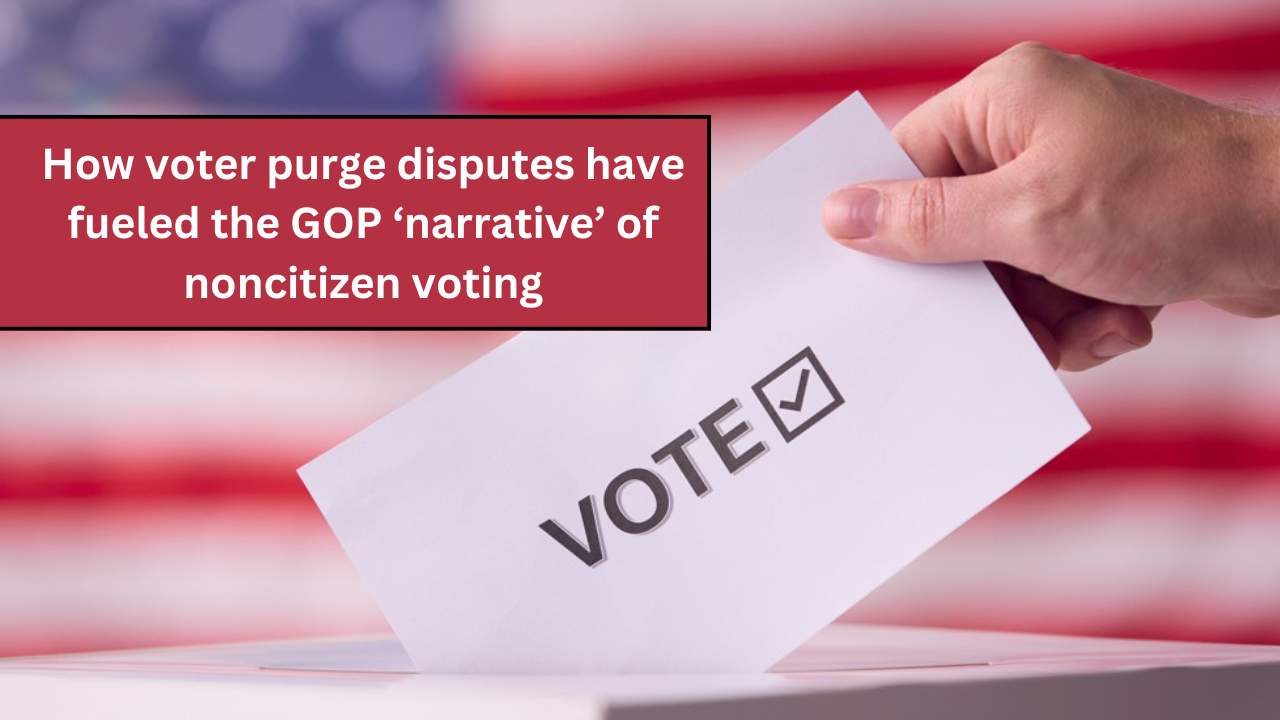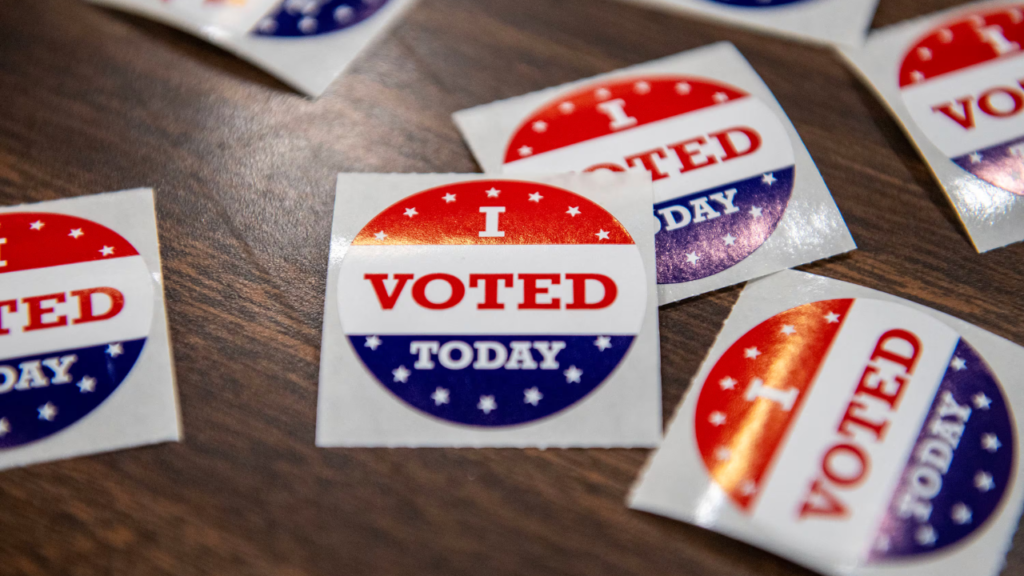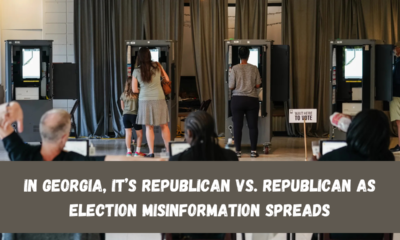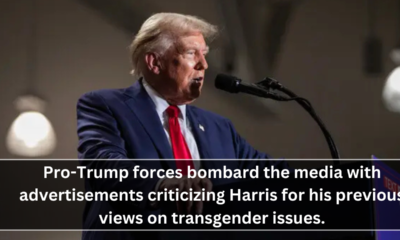Connect with us
Published
2 months agoon
By
Supriya
Voter suppression and election integrity have dominated the political discourse in the United States for the last few years, particularly among leaders of the Republican Party. Noncitizens voting has dominated much of this narrative. The heart of these arguments is the controversies surrounding the purging of voters. These arguments have led to questions about the legitimacy of electoral rolls and further implications for democracy.
The removal of names from voter registration lists is called a voter purge, and it is conducted by election officials. This can be due to a variety of good reasons such as a change of address to another state or even another country, death, or failure to vote in consecutive elections. Nonetheless, the purges will also sometimes result in gross disfranchisement. This will especially be the case when such purges take place in an aggressive and even unnoticed manner. According to some, the voting roll’s process might inadvertently disenfranchise a significant number of voters, especially those coming from underrepresented areas, negatively impacting their ability to participate in elections.

More focus on the problem of non-citizen voting by the Republican Party has been through a greater campaign to work on election integrity. Their argument is that the whole exercise of voting by non-citizens is unlawful; hence, the democratic process is being weakened. Since cases of noncitizen voting are extremely rare, the story persists, in part through voter purges.
While there are many leaders in the Republican Party who advocate for strict voter identification rules and routine purges of voter rolls, arguing these practices are necessary to prevent fraud, the focus on the problem of voting by noncitizens has come to be used politically as a mobilizer of the base and a justification for tightening up voting laws.
Voter purges have been battlegrounds in many states. For example, the 2018 gubernatorial election in Georgia had much ado about voter suppression efforts. The then-Secretary of State in Georgia was Brian Kemp, who received much condemnation for managing a voter purge that saw the removal of hundreds of thousands of voters from the rolls. A good proportion of those casualties from the removal benches were minorities, which is a significant alert about the discriminatory effects of such acts.
But while the Kemp camp set up a narrative based on the premise of fraudulent registration and voting by non-citizens as being necessary in the process to preserve integrity, the opponents said an overwhelming amount of evidence from people on the lists as eligible voters, showing less purging campaign had it in their interest politically, not so much to retain integrity in elections.
Read more :- “3 Zodiac Signs Set for Good Fortune on October 29, 2024—Are You One of Them?”
Such is the case due to aggressive processes in voter cleansing; many lawsuits have been seen in such a case. Advocacy groups challenged purges and claimed they were in violation of the Voting Rights Act and other rights under law. The courts have issued decisions on a few instances in favor of such advocacy groups, this time pointing out disproportionate effects on communities of color.
For instance, in the recent past, a good number of states have faced litigation on account of their voter purge procedures. Such incidents shed light on the contradiction existing between the need to provide access to the ballot and the desire to ensure electoral security. On the other hand, pro-voter purges argue that the rights of every citizen to participate in the democratic process must be protected. Instead, pro-voter purges argue that transparency and honesty are very important factors.

This has huge implications for the political system of the United States in terms of the narrative that surrounds the voting of noncitizens, which is supported by voter purges. The Republican Party framed the issue as one of national security and integrity to get the support of its rank and file. This was a narrative not only about votes by non-citizens but also about all forms of alleged abnormalities in the electoral process.
This strategy has been highly beneficial in rallying rural dwellers and conservatives who perceive and feel threatened by shifts in demographics and power swings politically. The rhetoric of voter fraud propels them into actions of political activity in defence of what they see under threat – their ideologies.
The Impact on Democracy on the Whole
The emphasis on voter purges and voting by non-citizens raises serious questions about the state of democracy in the United States. While it is undoubtedly the case that the integrity of elections is of utmost importance, the procedures used to ensure that integrity can have really negative consequences. All these groups – minorities, youth, poor people – stand to be disenfranchised because of very restrictive voting rules and an aggressive voter purge.
The chances of losing one’s voting rights increase with the rising passing of more stringent voting regulations by states than ever before.Besides hurt, it can also contribute to a loss in the level of public trust placed on elections. When great parts of people feel their opinion is not being mirrored back, the legitimacy of the electoral system as a whole stands questionable.

It requires an integrative approach to the problems related to voter purges and voting by noncitizens. In the first place, there must be complete openness about the processes of voter registration and purging. For states to ensure that voters are notified before their names are erased from rolls, there is a need to institute accessible mechanisms for reinstatement and ensuring that voters are informed.
Political leaders are responsible for putting the protection of voting rights ahead of partisan advantage. This implies that they should understand the importance of election integrity, though this should not be done at the expense of denying voting rights to qualified voters. An open debate or working together across party lines can be helpful in producing solutions that protect the legitimacy of elections while also having access to them for everybody.
The mystery that continues to surround the very fact of voting will require education in citizenship, too, because public understanding can combat those fear-based narratives commonly deployed to justify those most stringent voting restrictions through educating on the facts about the actuality of voter fraud, how great a rarity that phenomenon is.
Voter purge disputes have become increasingly central in the story the Republican Party tells about noncitizen voting, a further illustration of election integrity troubles in America. Although keeping elections safe is a powerful imperative, the ways of achieving this ideal should not violate the constitutional right to vote. Thus, the future of American politics depends on an inclusive democracy that gives every right to everyone while finding solutions for these problems.


Health Benefits of Running


The Mental Health Benefits of Exercise


Georgia Elections: How Misinformation Fuels Republican Infighting


The Innocent Sisters: Pennsylvania Nuns Falsely Accused of Voter Fraud


“Obama Talks Trump’s 2020 Election Chaos While Rallying for Harris in Michigan”


Pro-Trump forces bombard the media with advertisements criticizing Harris for his previous views on transgender issues.
